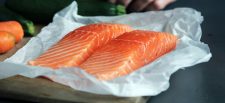Trade bodies from across the UK food manufacturing industry have expressed their frustration at the latest delay to the Border Target Operating Model (TOM) on UK-EU trade.
Post-Brexit border controls on imports from the EU have been officially delayed again, the UK Government has confirmed. Requirements such as controls on Sanitary and Phytosanitary (SPS) goods were originally due to be introduced on 1st October 2021. The latest announcement marks the fifth delay of its kind.
Within its latest report, the UK Government explained that SPS border controls will come into effect on 31st January 2024.
The outline for the model, published on 29th August, sets out the Government’s final plans for a new Border Target Operating Model that incorporates and responds to feedback from industry stakeholders. It was developed with further collaboration across the UK, Scottish and Welsh Governments, and engagement with officials from the devolved administration in Northern Ireland.
This sits alongside the ongoing review of customs declarations announced within the Spring Budget 2023, which is exploring potential simplifications for both import and export customs declarations.
Officials believe that the TOM represents “one of the most intelligent and data-driven models in the world.”
How will TOM be implemented?
The UK Government said that it intends to implement the model through three major milestones:
- 31st January 2024 – The introduction of health certification on imports of medium risk animal products, plants, plant products and high-risk food and feed of non-animal origin from the EU. The removal of pre-notification requirements for low-risk plant and plant products from the EU.
- 30th April 2024 – The introduction of documentary and risk-based identity and physical checks on medium risk animal products, plants, plant products and high risk food and feed of non-animal origin from the EU. Existing inspections of high risk plants/plant products from the EU will move from destination to Border Control Posts.
In April, the Government will also begin to “simplify” imports from non-EU countries. This will include the removal of health certification and routine checks on low risk animal products, plants, plant products from non-EU countries as well as reduction in physical and identity check levels on medium-risk animal products from non-EU countries.
- 31st October 2024 – The requirement for Safety and Security declarations for imports into Great Britain from the EU or from other territories where the waiver applies will come into force from 31st October 2024 as set out in the original Target Operating Model.
Animal health and spread of disease are top concerns
The Chartered Institute of Environmental Health (CIEH) voiced its concerns around a lack of clarity in several areas of the published plans.
While the model brings with it the promise of “a world-class border system”, including new controls to protect against biosecurity threats, CIEH believes there remains ambiguity about the future charging mechanism for these checks. The trade body argued that fees and charges should be set at the local level to account for the unique requirements and resources of individual regions.
CIEH emphasised the need for clarity in the risk categorisation of goods. It said: “The distinction between high, medium, and low-risk goods is vital for ensuring that controls are applied appropriately, maintaining the highest standards without causing unnecessary delays.”
It also expressed reservations about how the Trusted Trader Scheme will function in practice, given the potential inherent risks it could pose to biosecurity, food safety and animal and public health.
The Association of Independent Meat Suppliers (AIMS) welcomed the announcement but expressed its frustration that “nothing will be live until 31st January 2023, a further three-month slip.”
A spokesperson for AIMS said: “With the Government already recognising the risk to the UK from animal diseases such as ASF, HPAI and FMD, as detailed in their recent Risk Register we would have expected that delays such as the one announced today would not have been allowed to occur.”
A spokesperson for the British Meat Processors Association (BMPA) said the trade body had been expecting a delay in implementation but “simply shifting the deadline to January doesn’t address [a] more serious, underlying issue.”
The BMPA said: “When we left the EU, we were promised frictionless trade with Europe, but the current reality falls far short of that.
“When the Target Operating Model is eventually implemented, it will add another level of complication, delay and extra cost to our trade with our nearest and biggest trading partner, who we rely on for a large proportion of our food supply. Yes, it will level the playing field as the same barriers to trade are finally applied to imports as well as exports, but it will make the food that we need to import more expensive. It will also discourage some EU exporters from supplying into the UK market, preferring instead to sell to markets with fewer trade barriers.”
The National Pig Association (NPA) has also weighed in on the latest announcement, stating that a lack of physical checks on goods entering the country is “exposing the UK to potentially devastating notifiable diseases like African swine fever.”









